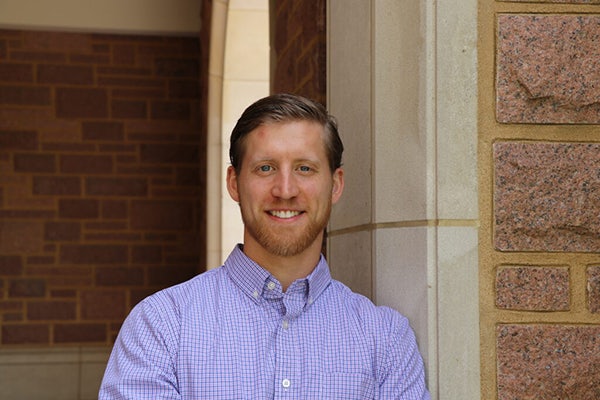When Alex Reiter was on active duty, one of his responsibilities was designing physical training programs. Sometimes things didn’t go well.
“People I was in charge of would get overuse injuries,” he said. He saw similar injuries throughout the Army and wanted to understand why.
He imagined getting a biomechanics master’s degree, then working in industry.
In 2015, he and his wife, Leigh, were ready for a change. Reiter transitioned to the Army Reserve. Then in Kentucky, he applied to Washington University. The move would put the Quincy, Ill., native and his wife, a Missouri native, closer to family.
Reiter reached out to David Peters, the McDonnell Douglas Professor of Engineering at the McKelvey School of Engineering. He shared his background and motivation to earn a master’s degree. Peters suggested a PhD.
“I didn’t even know what a master’s student, or PhD student, or even research looked like,” Reiter said. He graduated from the U.S. Military Academy in 2010, followed by a six-year active duty military career. Reiter talked it over with his wife.
“Leigh is a big reason I have been able to pursue my PhD,” he said. “We’ve had three boys along the way — Graham (4), Owen (2), and Jay (4 months).”
Reiter researches traumatic elbow injuries and ways that physical therapy-based approaches can restore function.
“How can we train the best way possible, meet the demands of the Army, and keep people healthy and safe?” he asked.
Now he is about to graduate with a doctorate in mechanical engineering.
Reiter begins this summer as a postdoctoral research associate at the University of Wisconsin-Madison. Ultimately, he wants to run a lab researching the biomechanics of military-related injuries.
“I thought it would be impossible to do what I wanted because of my background,” Reiter said. “Looking back, WashU is the best place I could have ended up.”
Click on the topics below for more stories in those areas
Back to News





